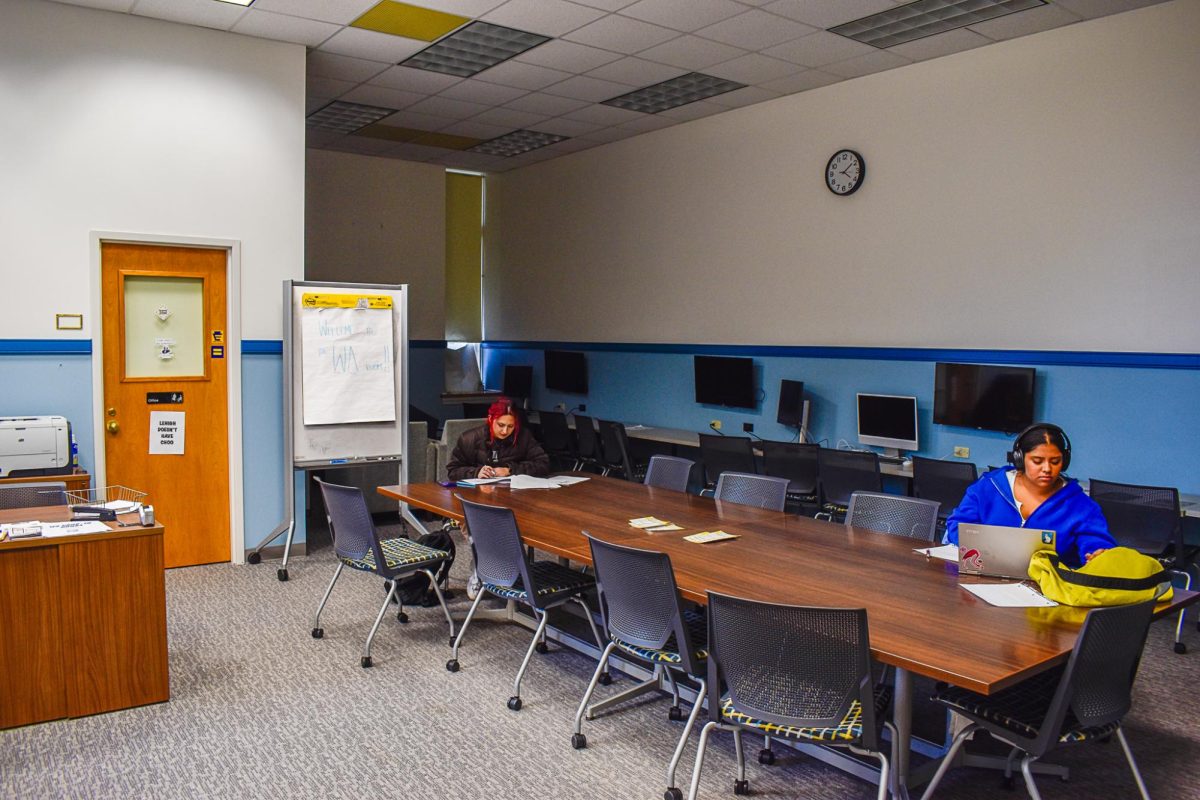Many writing associates, student employees of the College Writing Program, will not be assisting classes this spring semester and therefore are not being paid due to budget constraints.
The program hires student writing associates, commonly known as WAs, to assist classes with academic writing.
It is required that all First-Year Seminar professors have a writing associate working in their class, providing them a guaranteed job for the fall semester when First-Year Seminar courses run. However, a spring job is not guaranteed.
“The reason that there are students that don’t have an active position is not because there is a lack of demand … it’s more so the budget,” Emma Hetrick, the College Writing Program coordinator, said.
The program is suffering due to the annual increased demand for fall semester Writing Associates without an increased budget, and sufficient facility and administration to support the students through the spring semester.
“Last year, in the fall, we had 45 WAs on staff, and this year, we have 55. And that’s without a budget increase,” Hetrick said.
“In the early 2000s, the WA stipend was $940. Last semester [the stipend] was $900 and this semester it’s $800, so it has not increased in the last fifteen or so years,” Hetrick continued.
Along with budget issues, the College Writing Program is feeling physically cramped in its current home — room 319 of Pardee Hall.
“If we go much above 50 to 55 WA appointments, we don’t have the facilities to even accommodate that,” said English professor Bianca Falbo, the director of the First-Year Seminar program and assistant director of the College Writing Program.
Falbo explained there is a lack of administrative staff to support the program, as Hetrick is the sole administrator who oversees over 55 WAs without secretarial or administrative assistance.
Due to these program struggles, the College Writing Program has had to turn down professors’ requests for writing associates in their classrooms.
“We try very hard not to turn people down … but sometimes we do have budget constraints where we just cannot afford to hire more WAs,” Falbo explained.
This issue is not a new problem, given that there is consistently a larger demand for fall semester writing associates compared to the spring semester.
“We hired WAs with the assumption that they would work with FYS in the fall and the VaST program in the spring,” said English professor Tim Laquintano, the director of the College Writing Program, in reference to the now-defunct Values and Science/Technology course. “When the faculty shut down the VaST program about ten years ago, it left us with an extreme imbalance in demand.”
Some writing associates agree that they are greatly disappointed to not be working this semester, and not just because they are not being paid.
“I love my job, and it is kind of sad that this semester I’m not going to have the opportunity to meet more students,” said Camsey Noonan ‘26, a writing associate.
Mckenna Graf ‘26, also a writing associate, is upset for a different reason.
“The thing I enjoyed the most was the staff meetings,” she said. “I really liked to learn from everyone else to be a better writer … I am definitely feeling the lack of staff meetings.”
Disclaimer: Editor-in-Chief Madeline Marriott ’24, Managing Editors Emma Chen ’24 and Trebor Maitin ’24, Photo Editor Emma Sylvester ’25, Assistant Culture Editors Kristen Vincent ’26 and Natalia Ferruggia ’26 and Assistant Sports Editor Grace Sanborn ’25 are writing associates. They did not contribute writing or reporting.
Correction 2/3/2024: A previous version of this disclaimer misstated the class year of Emma Sylvester ’25 as a member of the class of 2024.





















































































































